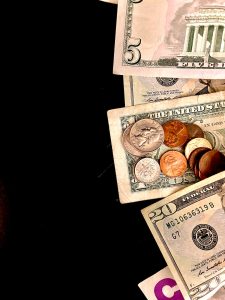The foreign exchange market is the largest financial market in the world, with over $5.3 trillion traded every day. Forex trading involves buying one currency while simultaneously selling another. As with any other investment, profits earned from forex trading are subject to taxes. In this article, we will explain how tax works in forex.
Taxation of Forex Trading
Forex trading is taxed differently in different countries. In the United States, forex trading profits are taxed as capital gains. The tax rate for capital gains depends on the duration of holding the asset. If the asset is held for less than a year, it is considered a short-term capital gain and subject to ordinary income tax rates. If the asset is held for more than a year, it is considered a long-term capital gain and subject to lower tax rates.
In other countries, forex trading profits may be taxed as income, which means they are subject to higher tax rates. It is essential to understand the tax laws in your country before engaging in forex trading.
Tax Deductions for Forex Traders
Forex traders can also take advantage of several tax deductions to reduce their overall tax liability. Some of the tax deductions that forex traders can claim include:
1. Home Office Deduction: If you operate your forex trading business from home, you may be eligible for a home office deduction. This deduction allows you to deduct a portion of your home expenses, such as rent, utilities, and insurance.
2. Education Expenses: If you attend seminars, workshops, or take courses to improve your forex trading skills, you can deduct the cost of these educational expenses.
3. Trading Expenses: Forex traders can also deduct expenses related to their trading activities, such as trading software, data feeds, and internet connection.
4. Business Travel Expenses: If you travel for business purposes, such as attending a forex trading conference, you can deduct your travel expenses, including airfare, hotel, and meals.
5. Retirement Contributions: Forex traders can also contribute to retirement accounts, such as an individual retirement account (IRA) or a solo 401(k), and deduct these contributions from their taxable income.
Tax reporting for Forex Trading
Forex traders are required to report their trading activities on their tax returns. The following are the forms that forex traders may need to file:
1. Form 8949: This form is used to report capital gains and losses from forex trading.
2. Schedule D: This form is used to report long-term capital gains and losses from forex trading.
3. Form 6781: This form is used to report forex trading gains and losses as ordinary income.
Forex traders must keep track of all their trading activities, including the date of each trade, the currency pair traded, the amount of profit or loss, and any expenses related to the trade. Failure to report forex trading activities accurately can result in penalties and interest charges.
Conclusion
Forex trading is a lucrative investment opportunity that can generate significant profits. However, forex traders must be aware of the tax implications of their trading activities. Forex trading profits are subject to capital gains taxes or income taxes, depending on the country of residence. Forex traders can also take advantage of several tax deductions to reduce their overall tax liability. It is essential to keep accurate records of all trading activities and report them accurately on tax returns to avoid penalties and interest charges.





